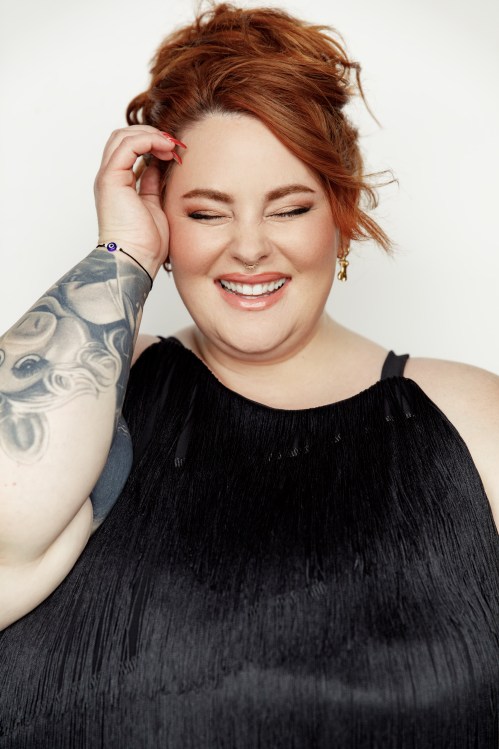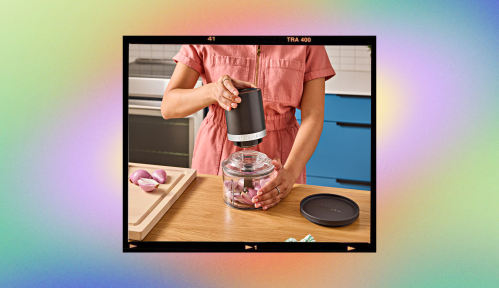Sarah* has a loyalty test to thank for helping her gather the courage to initiate her divorce.
Experts in This Article
relationship and sex therapist, founder at The Center for Modern Relationships
relationship therapist and founder of Therapy with Neha
The 28-year-old mother of two (a 2-year-old and a 1-year-old) had been suspicious in the past of her then-husband's phone activity—she had previously called him out for exchanging flirty Instagram DMs with a woman she didn't know. But Sarah wanted the relationship to work out, especially because they had two children together, and for a while after the indiscretion, things seemed fine.
It wasn't until she began noticing he was suddenly getting secretive with his phone again that she enlisted the help of a professional loyalty tester, who helped Sarah gain the ammunition she needed to end the nearly 6-year relationship once and for all.
"My gut was telling me something, and I was like, 'I hope it's not true,'" Sarah says. But after paying a loyalty tester around $140, she was soon handed proof that her husband was communicating with another woman via DMs, text, and FaceTime—flirting, making sexual comments, and even asking her to meet up.
"I was trying to stay optimistic. I was like, 'Maybe I'm just in my head from the previous situation,'" Sarah says. "I was actually really surprised. This was the week after Valentine's Day. I'm still shocked that this is happening. I mean, I can't stay with him. I have two kids, I'm not here to play games… It's horrible, but I'm glad [the loyalty tester] was able to send me the proof that I needed."
Loyalty testing has gone viral on TikTok over the past year or so. It's a service offered online, in which a person who may have reason to suspect their partner isn't being faithful can pay another person to reach out to their partner under the guise of wanting to date them. If the partner declines any propositions immediately, says they're in a relationship, or blocks the tester, they “pass” the test. But if they keep the conversation going, flirt back, or escalate the conversation, the customer has their unfortunate answer.
Maya,* 26, didn't have a strong reason to believe her boyfriend of three and a half years was cheating. She had previously seen him like a few women's TikTok thirst traps, but when confronted, her boyfriend offered a handful of excuses. Maya let it slide before she saw an Instagram ad for a loyalty test company last year.
"I just thought, 'I want to be certain,'" Maya says. Her family's policy is to wait to meet a partner until the relationship is serious, and given that Maya and her boyfriend had begun to talk about the possibility of getting engaged, it seemed like the right time to confirm his dedication to her.
"He failed, like, immediately," Maya says.
The loyalty tester shared Instagram DM screenshots in which she asked the boyfriend if he was single and if he'd want to go out with her. He skirted around answering the question about his relationship status, Maya says, but he did express an interest in meeting up.
"That was a rough time," Maya says. "I was furious, but I was really happy that I did that and saw that ad, because if I realized later—like, after introducing him to my family—that would have been a whole other thing."
Should you try a loyalty test on your partner?
Maya and Sarah maintain that they would do the test over again if given the chance, and recommend it to others as well. But they also express worry about being able to trust another man again after this experience.
"I'm definitely going to go with my first instinct on things [now]," says Maya, who adds that she “hasn’t really been dating” since the experience. "I downloaded the dating apps a month ago, but I'm super hypercritical now, just because of all of that. That scarred me. I look for any little red flags now."
Being afraid to trust again after a partner is dishonest is a common struggle, according to relationship experts. The key to being able to find stability with someone new is to stay present with that relationship and pay attention to how this new person is treating you—and try not to project past fears on a different person.
Of course, this can be easier said than done. "Start by getting curious about where the insecurity is coming from," says dating coach Michelle Herzog, LMFT, CST, founder and CEO of The Center for Modern Relationships. "If the relationship is otherwise healthy, there’s space to work through it together with honest dialogue or professional support. But if your gut is constantly in knots and your needs for safety and transparency aren't being met, it may be time to reevaluate."
Rather than carrying out a loyalty test, it’s a better idea to start an honest conversation with your partner about your relationship doubts, says relationship therapist Neha Prabhu, LMFT. Fighting possible deception with more deception might catch someone in the act and help you get out of a bad situation, but it may not help you develop the skills to build a healthy relationship in the future.
"It is very normal to experience caution around trusting someone, especially if you've been hurt in the past," says Prabhu."However, no loyalty test will remove that distrust or insecurity. With open communication, healing past wounds and being present with what is happening in your current relationship, you can have a secure and stable relationship."
Let's say you do initiate an open conversation with your partner about struggling to trust them, but the lies and deceit keep coming. What then? Couples therapy could be a helpful next step, Prabhu and Herzog say. It also may be helpful for you to reflect on your own or in a solo therapy session to figure out if this is a relationship you want to continue.
"This could be an important opportunity to explore and evaluate what your boundaries are, including your level of tolerance for these behaviors and your partner's lack of desire to make adjustments around them," Prabhu says.
So, how can you find a partner who would pass a theoretical loyalty test? Lead with your values when choosing someone to date, Herzog recommends. And remember that the foundation of a happy, trusting relationship is mutual respect—not just chemistry or attraction.
"When you prioritize qualities like integrity, empathy, and emotional availability and actually see those values in action, it becomes easier to trust," she says.
Sign Up for Our Daily Newsletter
Get all the latest in wellness, trends, food, fitness, beauty, and more delivered right to your inbox.
Got it, you've been added to our email list.











